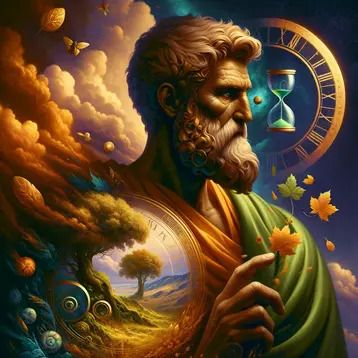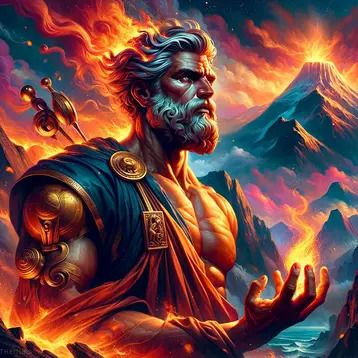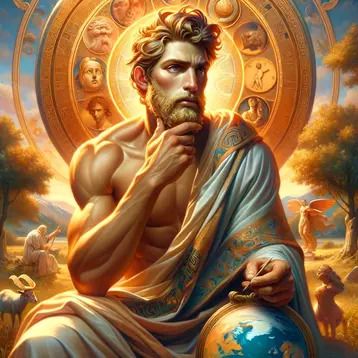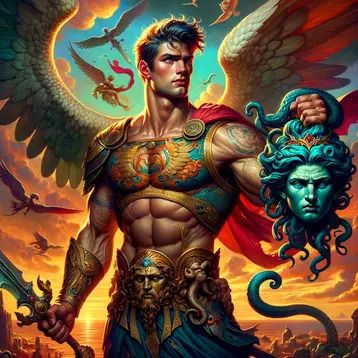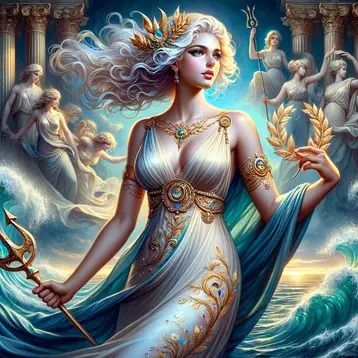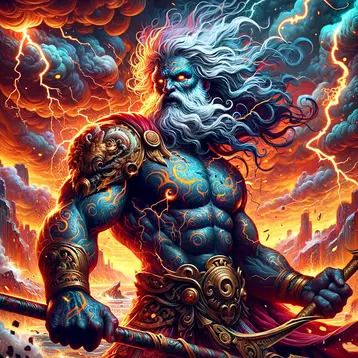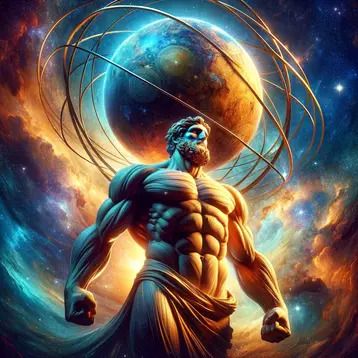
Atlas
Atlas was one of the most famous Titans, the son of Iapetus and the Oceanid Asia (or, possibly, Clymene). He was the leader of the Titan rebellion against Zeus, and he got a fitting punishment after the end of the Titanomachy: he was condemned to eternally hold up the sky. Only once, and for a very brief period, he was bereaved of this burden by Heracles. Perseus, probably using Medusa’s head, turned him into the stony Atlas Mountains.
Name and Portrayal
Atlas’ name is of unsure – probably pre-Greek – origin, but the Ancient Greeks and Romans seem to have thought it had been derived from a similar-sounding Greek root with the meaning of “very enduring.”
This fully coincides with Atlas’ portrayal as an enormous, bearded man, always slightly bent and in pain under the weight of the heavens, usually represented as a globe sketched with the most famous constellations.
Family
According to Hesiod, Atlas was the son of the Titan Iapetus and the Oceanid Clymene. However, some – disagreeing with him – say that his mother was another sea nymph named Asia. Either way, he had three brothers (Prometheus, Epimetheus, and Menoetius) and possibly as many wives.
By Pleione, he had eight daughters: the goddess-nymph Calypso and the seven Pleiades (Alcyone, Asterope, Electra, Caleano, Taygete, Merope and Hermes’ mother, Maia). Another Oceanid, Aethra, bore him few more daughters, the Hyades, and his only son, Hyas. Finally, according to some, the Hesperides were also Atlas’ daughters, out of his marriage with Hesperis.
The Titanomachy and Atlas’ Punishment
Iapetus’ sons took the opposing sides during the Titanomachy: while Prometheus and Epimetheus decided to help Zeus, Atlas and his brother Menoetius sided with the Titans. In time, Atlas even managed to become the leader of the rebellion, but that didn’t end up too well for him in the long run, since it got him the most severe punishment after the defeat of the Titans.
Namely, Atlas was condemned to hold up the heavens for all eternity, standing at the furthest west edges of the earth near the garden of his daughters, the Hesperides. Some say that the sky was placed directly on his shoulders. Others, however, are more merciful, claiming that Atlas actually holds the two pillars which keep the earth and the sky apart.
Meetings with Heroes
Since, obviously, Atlas wasn’t allowed to move one bit – and not many people knew where his dwelling place was – the only myths he’s in include two of Greek’s greatest heroes reaching him at the end of the earth.
Heracles
The first of them was Heracles, who, after having two of his original ten labors invalidated, was tasked with bringing Eurystheus few of the Hesperidean golden apples. Heracles smartly offered Atlas to switch roles with him so that the Titan could fetch the apples from his daughters himself, causing no fuss or drawing unnecessary attention from Ladon, the dragon-guardian of the apples.
Atlas did just that but had a plan of his own – to deliver the apples himself to Eurystheus and then, of course, forget all about Heracles and his old job. Heracles, however, outsmarted the gullible Titan, agreeing to the plan but asking him to hold for him the sky first so that he could adjust himself in a more comfortable position. Instead, Heracles just seized the golden apples and never looked back.
Perseus
The second – and last – hero to visit Atlas was Perseus. Passing by the Titan, Perseus asked him for hospitality, but Atlas, fearing some humiliating trick yet again, turned him down. So, Perseus showed him the head of Medusa and Atlas was turned into stone, i.e., the mountain range in North Africa which still bears his name.
Atlas Sources
There are few verses in Hesiod’s “Theogony” recounting the stories of Atlas and his brothers. Heracles’ encounter with Atlas is retold in the fifth chapter of the second book of Apollodorus’ “Library,” while his transformation into a mountain range is narrated by Ovid in the fourth book of his “Metamorphoses.”
See Also: Twelve Labours of Heracles, Perseus, Iapetus, Clymene, Asia, Menoetius, Prometheus, Epimetheus
Atlas Video
Atlas Q&A
Atlas Associations
Link/Cite Atlas Page
Written by: The Editors of GreekMythology.com. GreekMythology.com editors write, review and revise subject areas in which they have extensive knowledge based on their working experience or advanced studies.
For MLA style citation use: GreekMythology.com, The Editors of Website. "Atlas". GreekMythology.com Website, 30 Jul. 2018, https://www.greekmythology.com/Titans/Atlas/atlas.html. Accessed 26 April 2024.

